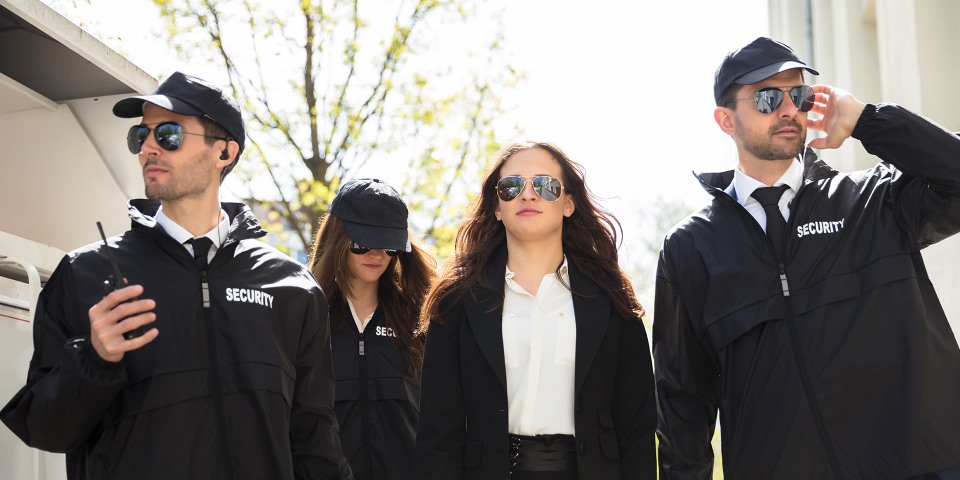

Close Protection Security Training
The role is extremely demanding, so it is important to get the best quality training before you kickstart your career. It opens the role of bodyguarding for VIPs and celebrities, high-net-worth individuals protections, asset protection for high-end retailers, private international assignments and more which are highly paying opportunities. Our trainers are experienced, qualified, and competent person who has got military and police background. Our practical teaching includes realistic live operations as well theory-based classes which will fully engaged and acclimatised you the real life of Close protection operative.
In addition to the above, the training, delivery and assessment of this qualification take place over a minimum of 18 days and each day of training, delivery and assessment does not exceed 11.5 hours.
You must pass a basic level of English and should have Level 3 first aid at work certificate or similar medical course recommendable before you attend this course. If you do not hold this qualification, we deliver first aid at work prior to CP course which will be in total 21 days course.
Documents Required for Registration
- Passport Copy or Driving Licence or BRP
- Proof of address (no more than 3 months old). Any of 2x documents – Bank Statement or Utility bills or Pay slip or GP Letter or NI Letter or P60/P45.
In order to submit your documents to us easily using our online form, click on the button below.
Alternatively, you can send via email at trainings@nepbridge.co.uk
What's included in the course?
Practical assessments of each learner will be visually recorded.
It is mandatory for all applicants applying for a Close Protection licence to have a valid First Aid at Work qualification or equivalent.
I am text block. Click edit button to change this text. Lorem ipsum dolor sit amet, consectetur adipiscing elit. Ut elit tellus, luctus nec ullamcorper mattis, pulvinar dapibus leo.
Principles of Working as a Close Protection Operative in the Private Security Industry
- Understand the roles and responsibilities of a close protection operative
- Understand current law and legislation within a close protection context.
- Understand the importance of threat and risk assessment.
- Understand personal and professional skills within a close protection environment.
- Understand the importance of teamwork within a close protection environment.
- Understand surveillance, anti-surveillance and counter-surveillance methods.
- Understand search procedures within a close protection operation for people, vehicles, and buildings/venues.
- Understand close protection foot drills.
- Understand venue security operations and requirements.
- Understand the importance of planning, route selection and additional licence considerations.
- Understand reconnaissance within a close protection environment.v
- Conduct reconnaissance activity.
- Understand the importance of operational planning.
- Assessment MCQ: 52 questions
- Assessment time: 1 hour 20 minutes
- Pass mark: 70%
Working as a Close Protection Operative in the Private Security Industry
- Undertake a dynamic risk assessment.
- Carry out a risk assessment.
- Demonstrate use of surveillance, Anti surveillance and counter surveillance.
- Be able to search people, vehicles and venues.
- Demonstrate close protection foot drills.
- Be able to demonstrate venue security skills.
- Be able to manage transport arrangements within a close protection environment.
- Carry out incident management follow-up.
- Demonstrate embus/debus technique.
- Be able to prepare and carry out a close protection assignment.
- Be able to deal with a range of incidents within a close protection environment.
- Assessment Method: Externally set Workbook Portfolio of evidence.
- Pass mark: 100%
Application of Conflict Management in the Private Security Industry
- Understand the principles of conflict management appropriate to the role.
- Understand the principles of conflict management appropriate to the role.
- Understand how to recognise, assess and reduce risk in conflict situations.
- Understand the use of problem-solving techniques when resolving conflict.
- Demonstrate approaches to take when addressing unacceptable behaviour.
- Demonstrate ways to deescalate conflict situations.
- Demonstrate working with colleagues to de-escalate conflict situations.
- Assessment MCQ: 20 questions
- Assessment time: 30 minutes
- Pass mark: 70%
Principles of Terror Threat Awareness in the Private Security Industry*
- Understand terror threats and the role of the security operative in the event of a threat.
*Identifies content that can also be taught through self-study. RPL can be used if a learner has completed the ACT e-learning and ACT for Security e-learning and provides certificates dated after January 2020
- Assessment MCQ: 10 questions
- Assessment time: 20 minutes
- Pass mark: 70%
Principles of Working as a Door Supervisor for Close Protection Operatives in the Private Security Industry
- Understand how to keep vulnerable people safe.
- Understand licensing law relevant to the role of a door supervisor.
- Understand queue management and venue capacity responsibilities relevant to a door supervisor.
- Assessment MCQ: 29 questions
- Assessment time: 45 minutes
- Pass mark: 72%
Application of Physical Intervention Skills for Close Protection Operatives in the Private Security Industry
- Understand the requirements of providing clear and concise instructions to the principal and team members in emergency situations.
- Know how to respond to a change in operational conditions from standard operating procedure (SOP) to emergency operating procedure (EOP).
- Know the responsibilities of the close protection team when there is an immediate physical threat to the principal.
- Understand the necessity for narrowing the concentric layers of protection when managing an immediate threat to the principal.
- Understand the implications of common and criminal law when using force on another person.
- Know the positive alternatives to using physical intervention skills in a close protection environment.
- Understand associated threats as a result of an attempted assault or unwarranted attention towards a principal.
- Know how to apply physical intervention skills in a justifiable, ethical, and professional manner.
- Be able to use non-pain compliant soft skills to prevent harm to a principal.
- Be able to use defensive non-pain compliant skills to protect self from assault.
- Be able to use non-pain compliant methods of protecting the inner cordon.
- Be able to protect the principal from assault.
- Be able to communicate effectively to encourage de-escalation.
- Assessment MCQ: 30 questions
- Assessment time: 45 minutes
- Pass mark: 80%
Application of physical intervention skills in the private security industry
- Understand physical interventions and the implications of their use.
- Understand the risks associated with using physical intervention.
- State the specific risks associated with positional asphyxia.
- Understand how to reduce the risks associated with physical intervention.
- Identify how to deal with physical interventions on the ground appropriately.
- State how to manage and monitor a person’s safety during physical intervention.
- Be able to use physical skills to protect yourself and others.
- e able to use non-pain compliant standing, holding and escorting techniques.
- Assessment MCQ: 30 questions
- Assessment time: 45 minutes
- Pass mark: 80%
Door Supervisor Security Training Course
A Qualified Door Supervisor can legally work in a wider variety of roles than a Security Officer. Although the course seems 2 days longer, this opens a wider range of employment opportunity for candidates. A Door Supervisor can work for all the sectors that a Security Officer might be limited to, as the Door Supervisors have an extra physical intervention technique training added on to their course, which helps them to monitor and control the physical disturbances act, that highly occurs in alcohol-serving areas such as bars, pubs, events and festival.
Frequently Asked Questions (FAQ)
How long is the duration of the Close Protection course?
Our Close Protection training course runs for 18 days. It will be an extra 3 days if you are doing the First-Aid at Work training course as well.
How can I apply for the Close Protection course?
You can call our Aldershot branch at 01252 36 46 91, or our Ashford Branch at 012332 25 8 25. Alternatively, you can send us an email at contact@nepbridge.co.uk with your name, contact details and the course you’re interested in. You can find all our contact details here. Click here
How can I pay for this course?
You will receive an invoice via email once you have been registered onto our system. You will be able to pay directly using your credit/debit card or by using PayPal. You may also pay via bank transfer – the details will be listed on the invoice.
Can I pay by cash?
Yes. You can pay by cash by visiting one of our offices.
When is your next Close Protection course?
All our upcoming training dates are up on our website and are regularly updated. Please follow this link to view our course dates: Upcoming Training Courses
Alternatively, you can also find our upcoming dates on our Facebook and Instagram pages.
What jobs can I do with a Close Protection licence?
With a Close Protection licence, you can expect to work in roles such as
bodyguarding for VIPs and celebrities, protection of high net-worth individuals, asset protection for high-end retailers, private international assignments and more high paying opportunities.
Will I receive physical copies of my Close protection and First-Aid at Work Certifications?
No. Once we receive your results, we will send you your E-certificates via email. You will not need your certificates to apply for a SIA licence as your details will be automatically passed on to the SIA once you have passed.

